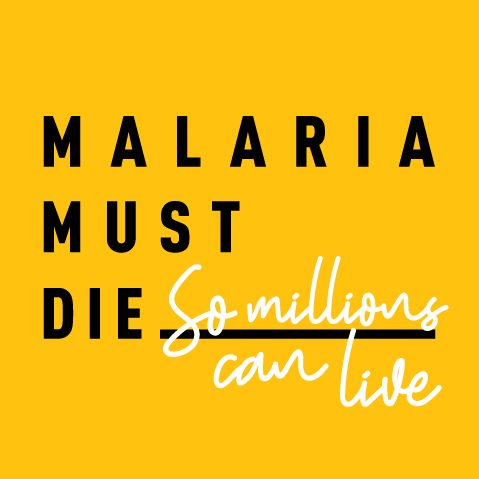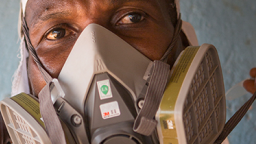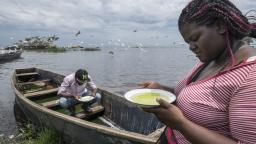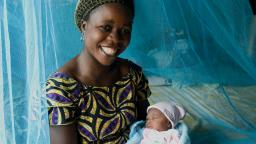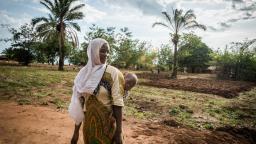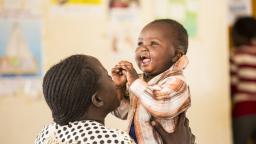While the world fights Covid-19, there are growing concerns the pandemic could lead to a rise in malaria cases. Not only will Covid-19 put pressure on health systems, but it could also prevent vital malaria prevention and treatment from being distributed.
Programmes, such as the one Adams is involved within his town in Ghana, are vital in the continued fight against malaria.
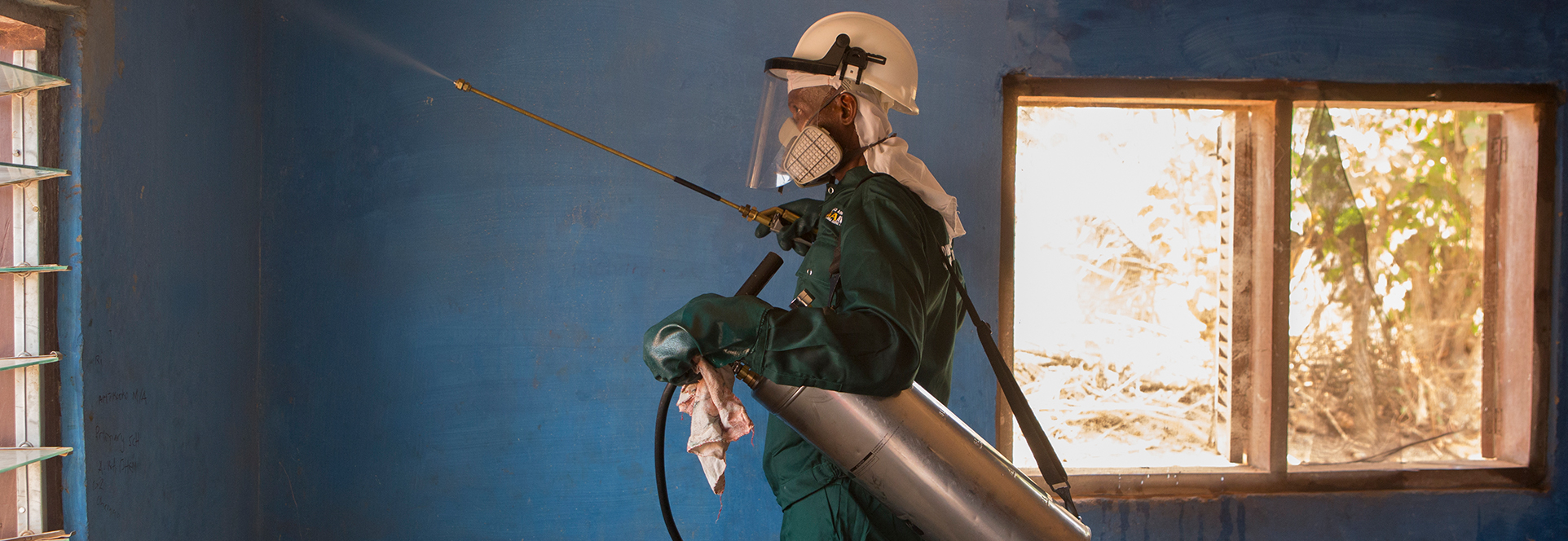
Adams sprays houses with insecticide in his community in the months leading up to rainy season every year. For him, malaria is personal:
I have seen many people who I know struggle with it [malaria] over the years. I also had malaria when I was a boy. For a mother or a father to stay at home to care for a sick child is another day not working, so everyone suffers.
Adams can see the direct impact of his work:
It has helped the whole of Obuasi township. There is less malaria, and everyone appreciates that here. I feel very happy every day to know that I am being of assistance.
In fact, since the programme started in Obuasi in 2006, cases of malaria have dropped by 74%.
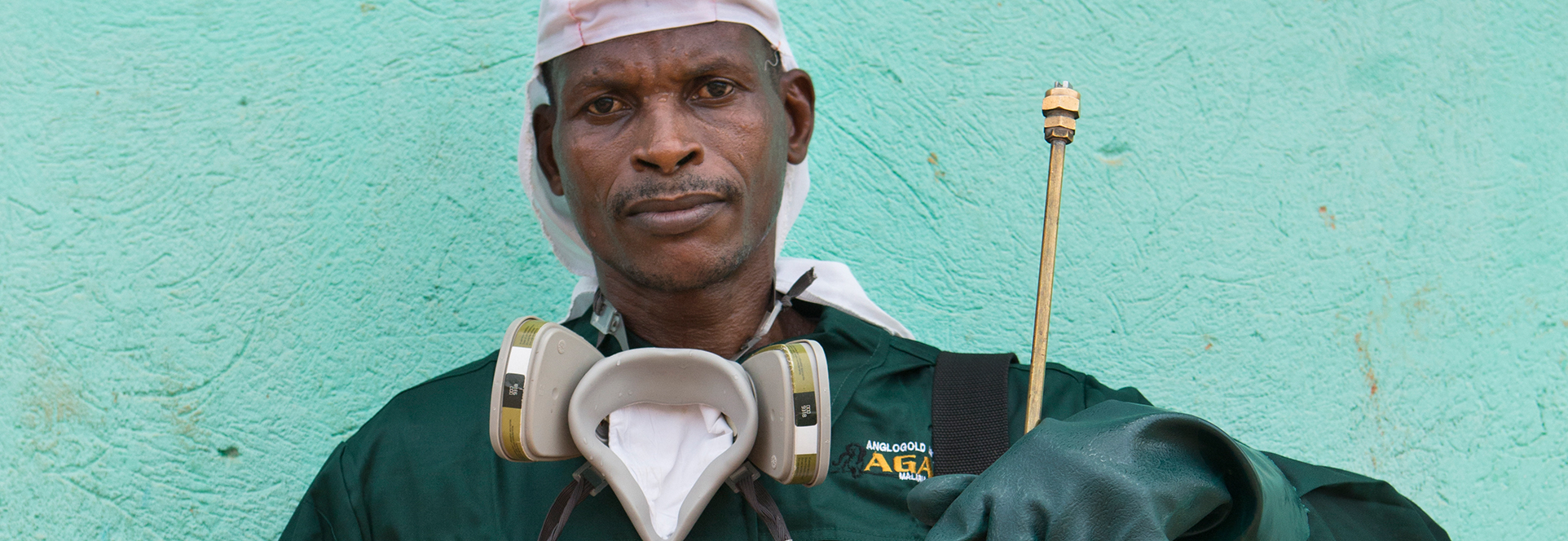
Global investment that has encouraged the spraying of homes combined with the mass distribution of insecticide-treated nets and better access to healthcare has saved 7 million lives and prevented a billion cases of malaria since the year 2000.
But this year Adams hasn’t been able to get out and spray the houses of Obuasi before the start of rainy season due to the Covid-19 lockdown. It’s predicted that cases of malaria in the town could increase from a dozen every month to 1,200.
The temporary shutdown of anti-malaria programmes such as spraying, net distribution and tests is happening across the many parts of sub-Sharan Africa. The World Health Organization has warned if these are not carried out there will be large malaria epidemics across the region.
If governments move fast and carry out their malaria prevention programmes, a surge in malaria can be prevented. Action now will save hundreds of thousands of lives and enable us to cope with new health threats we might be face with in the future.
